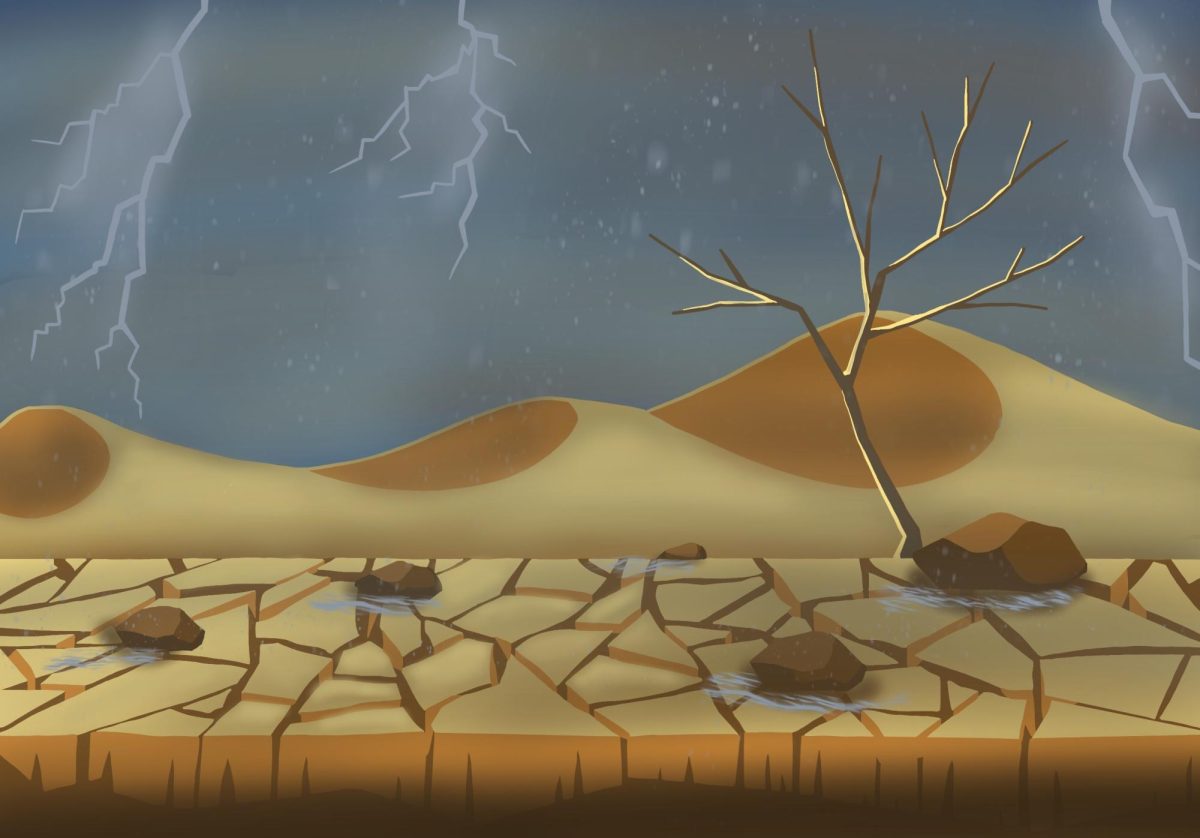The last several weeks have seen a flurry of Supreme Court cases regarding affirmative action, religious freedom, environmental regulation and student debt relief. Amid the din, one decision altered the future of the Navajo Nation and set a risky precedent for many others.
In this case, the Navajo Nation sought for the U.S. government to conduct a process to clarify the water rights it holds for the Nation, as laid out in an 1868 treaty. It argued the treaty promised water to the Nation, but did not specify a quantity or any process to protect and ensure access to that water.
The Supreme Court ruled against the Navajo Nation in a 5-4 decision that represented something relatively rare in recent news: a decision not unanimously passed by the new conservative majority.
Associate Justice Neil Gorsuch, a conservative Trump appointee, sided with the Navajo Nation.
“Everyone agrees the Navajo received enforceable water rights by treaty,” wrote Justice Gorsuch in his dissenting opinion. “Everyone agrees the United States holds some of those water rights in trust on the Tribe’s behalf. And everyone agrees the extent of those rights has never been assessed.”
“Adding those pieces together, the Navajo have a simple ask: They want the United States to identify the water rights it holds for them,” he continued. “And if the United States has misappropriated the Navajo’s water rights, the Tribe asks it to formulate a plan to stop doing so prospectively.”
The court determined the United States was under no obligation to ensure the reservation’s access to water. The decision is a break with precedent and a blow to relations between the U.S. government and tribal nations. But it also represents a critical moment as we reckon with the mounting consequences of climate change.
The decision comes after years of ever-intensifying drought in the Colorado River Basin, which supplies water to 40 million people in the American West.
Seven states rely on the Colorado River for water: Arizona, Nevada, New Mexico, California, Colorado, Utah and Wyoming. These states have battled for years over how to address the crisis of the drying-up river and how to apportion out the water that remains.
With the Biden administration as the referee, these states continue to debate policy and engineering solutions, assert legal rights and evade federal intervention. No one wants to cut water usage and risk damaging their economy.
The question of the Colorado River is simple: Who should bear the brunt of climate change? Who will go unharmed and unchanged? Who is best poised to protect themselves and those they represent?
There are 30 federally recognized tribes that derive their water from the Colorado River Basin. While 22 of these tribes have recognized water rights to as much as 26% of the Basin’s average annual water supply, actual access to clean water varies. Approximately 30% of the Navajo Nation’s 175,000 residents do not have running water in their homes.
What will the Supreme Court’s ruling against the Navajo Nation mean for these 22 tribes? And what about beyond the United States?
The Colorado River basin supplies water to two Mexican states. Many who historically relied on the river have watched it recede since the 20th century due to American operations. The affected include members of indigenous groups, like the Cucapá tribe.
Does the United States not have an obligation, morally if not legally, to limit how its actions will harm others?
According to the Supreme Court, it does not even have an obligation to ensure the water rights of those within its borders — water rights established by its own legal agreements with those groups.
An amicus brief submitted in support of the Navajo Nation’s case argued established precedent sided with the right of tribal nations to hold the U.S. government to the promises made in treaties and other agreements. The amicus brief was submitted by a group of 37 federally recognized tribal nations and three intertribal organizations.
“Concomitant with the promise to reserve water rights is the corresponding duty to protect and deliver on that promise and avoid rendering those rights meaningless through obstruction, depletion, or diversion to more junior users,” wrote the brief’s authors.
By “more junior users,” the brief refers to groups whose legal water rights were established after those of the Navajo Nation. The Nation’s water rights outrank these users. This includes the governments of all seven American states in the Basin.
While Minnesota is far from the Colorado River Basin, the Arizona v. Navajo Nation decision should open our eyes to the ways climate change could impact any American state.
Minnesota’s winters and summers have both been warming and the state has seen heavier rains in the last several decades. This summer has also seen multiple waves of air quality alerts as clouds of wildfire smoke drift down from Canada.
Should long-term or sudden climate disasters touch our lives, who will be guaranteed a seat at the policymaking table? Whose legal rights to resources like water or clean air will be upheld? Whose will suffer? Who will be caught in the crossfire between states and governments?
However these events unfold at the state level, who will the highest court in the land side with?
The Supreme Court has sent a clear message. It is aware of the effects of climate change and accepts its disproportionate impact on certain groups and places. We must ask ourselves: if we cannot trust the Supreme Court to protect such a nonpartisan right as access to water, what can we expect them to do for us?












